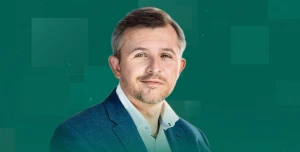
How relatives search for missing soldiers in Ukraine
There are tens of thousands of missing people in Ukraine. According to the latest information from Ombudsman Dmytro Lubinets, this number reaches 37,000, including both civilians and military. In fact, the actual numbers are much higher. The search for them is complicated by the ongoing hostilities
Espreso will reveal what a family has to go through when a soldier is reported missing.
Mass graves of Ukrainian defenders in the forest
The brother of lawyer and volunteer Tetiana Hoidyk, Oleh Hurko, volunteered to serve in the 95th Air Assault Brigade. Now the burden of searching for Oleh, which has been going on for a year and three months, has fallen on his sister's shoulders.
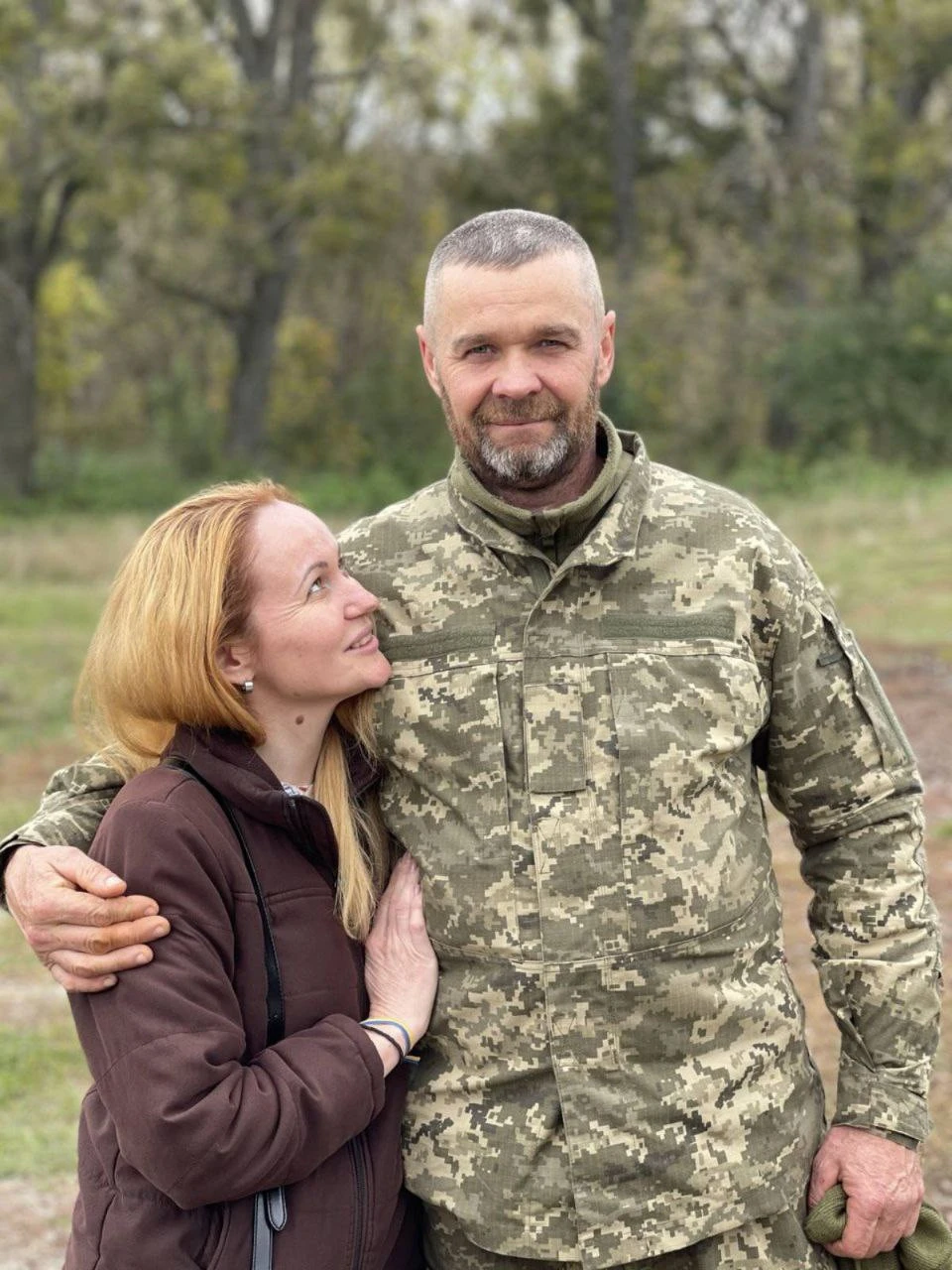
Photo: provided by Tetiana Hoidyk
Oleh Hurko came up to defend his homeland on his birthday, November 26, 2022. He turned 45 on that day. Tetiana calls this date fateful. He was a veterinarian by training. This is a family profession: her mother, father, and grandfather are veterinarians, and only Tetiana went into law. After training in the UK, Oleh was recognized as one of the best snipers, and upon his return he was sent to the hottest area at the zero position as part of the 95th Airborne Brigade.
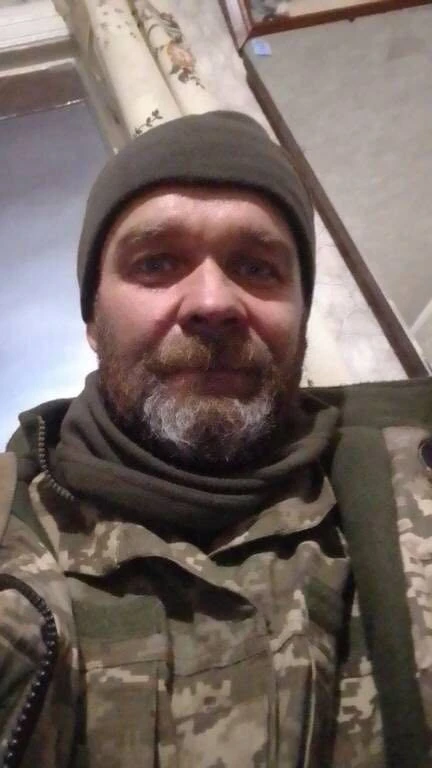
Photo: provided by Tetiana Hoidyk
The last time the sister and her brother spoke was in the evening of January 14 last year. The conversation, in which Oleh asked for prayer before the terrible assault, lasted several minutes.
"I know they often went on assaults. Oleh, at the time he went missing, had suffered 3 concussions. The last one, just a day and a half before the assault, was severe, but my brother refused to go to the aid station, as his comrades-in-arms told me. When the assault took place on January 15th, he volunteered to go. The day before, he called and said, 'Sister, pray for me, I beg you, because there will be a very fierce battle.' He had never said anything like that before, even though they had such missions every 2-3 days. Since then, we've heard almost nothing about him," recalls Tetiana.
Those fierce battles took place in Kreminna, specifically in the accursed, as the soldiers' relatives call it, Serebryanske forestry.
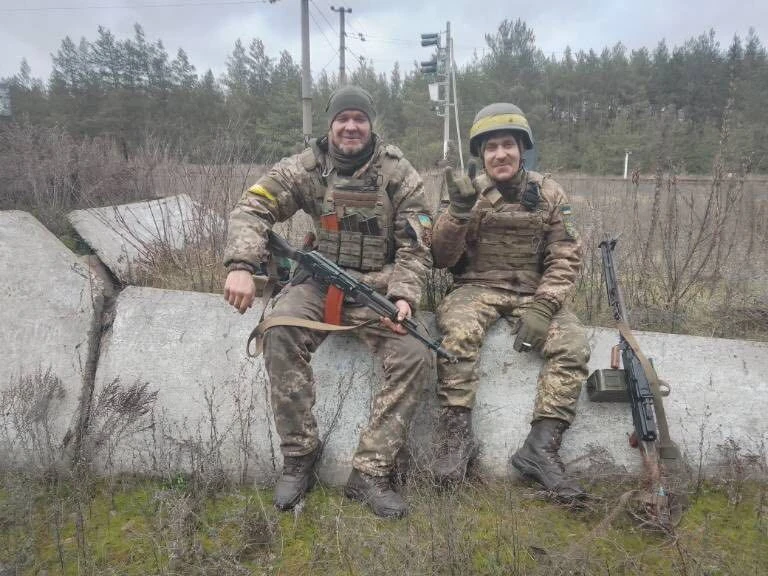
Photo: provided by Tetiana Hoidyk
"Not long ago, I attended one of the Azov actions, and a young man said, “Everyone keeps silent about the direction of the Serebryanske forestry, but the guys there hold on only by character. I know that there are about 30 mass burial sites of our guys there today. The territory is occupied, so bodies are returned through repatriation. They dig up the graves and return the bodies to us for DNA analysis,” says Tetiana.
She explains that, as a lawyer (particularly assisting families searching for their missing relatives), she knows that after a concussion, her brother should have been evacuated, sent for three days of treatment, the degree of concussion established, and only then returned to positions or directed to the hospital. However, this was not done.
"Why am I telling you this? Because sometimes, as far as I know, there is negligent treatment of the guys. They don't complain because they are assault troops, but a lot depends on the command," the woman emphasizes.
Search and body identification
"The first days of the search," admits Tetiana Hoydyk, "were truly terrifying. I reached out through my volunteer friends for help with the search, contacted the command, but the comrades were very reluctant to engage."
"I understand all this. But I have many questions. After the assault, they didn't take away the bodies, even those who, according to the boys, died. The evacuator didn't come, and the battle lasted for 3 hours. They didn't receive reinforcements. The investigation report and what they say differ. In that assault, 10 guys went missing. One of them, severely wounded, was returned from captivity," the woman recounts.
In February of last year, just a few weeks after Oleh Hurko disappeared, his sister nervously browsed through photos of fallen soldiers, fearing to recognize her brother among them. Later, she had to look through dozens more such images, compare DNA tests, and continue the search.
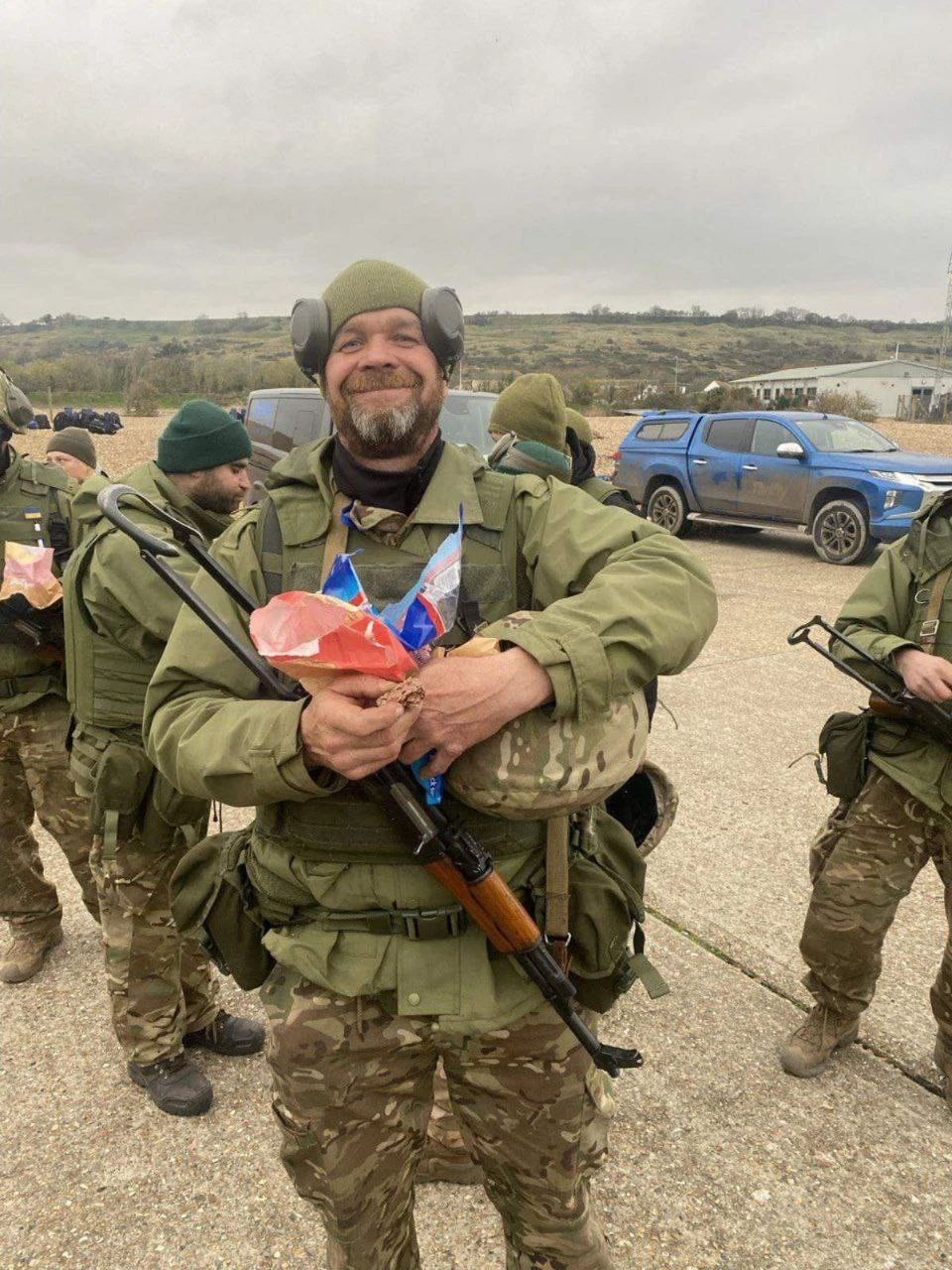
Photo: provided by Tetiana Hoidyk
"They sent me a photo of a similar guy who died, but identifying was practically impossible because the angle only allowed comparing the nose and eye. I sent this photo for a portrait examination, and the match percentage was insignificant. The forehead is the most informative because it doesn't change due to decomposition processes. They didn't confirm that it was my brother. Also, there were no matches in the DNA database," the woman says.
"The last time there were 17 bodies from the Kreminna direction," recalls Tetiana. "They sent me photos with anthropometric data that could match the features of Oleh Hurko, but through dental examination, skull shape, he was not identified among the dead returned by the occupiers."
"My brother didn't have any personal belongings with him, and there are no distinctive marks on the body, only a cross that our mother gave him. Every time bodies come from the direction where my brother was, they send me photos. Now, the only thing that could identify him in my case is his teeth, considering the time elapsed. But so far, there are no matches. That's why we're not saying for sure that my brother is dead, and we're not stopping the search. I have to bring him back, and I really want him “ with the shield.” It would be very scary “on the shield”. I'm afraid my parents won't be able to handle it," shared Tetiana.
Relatives of the missing persons report that currently there are many bodies from which DNA samples have not yet been collected, and fallen soldiers may remain in morgues for several months. Without the DNA procedure, even with the initial examination, bodies are not released. There is also a situation where there is a high DNA match, but the relatives refuse to believe in the death of their loved ones and do not bury them. These soldiers are buried under a number, later exhumed, and sent to their place of residence.
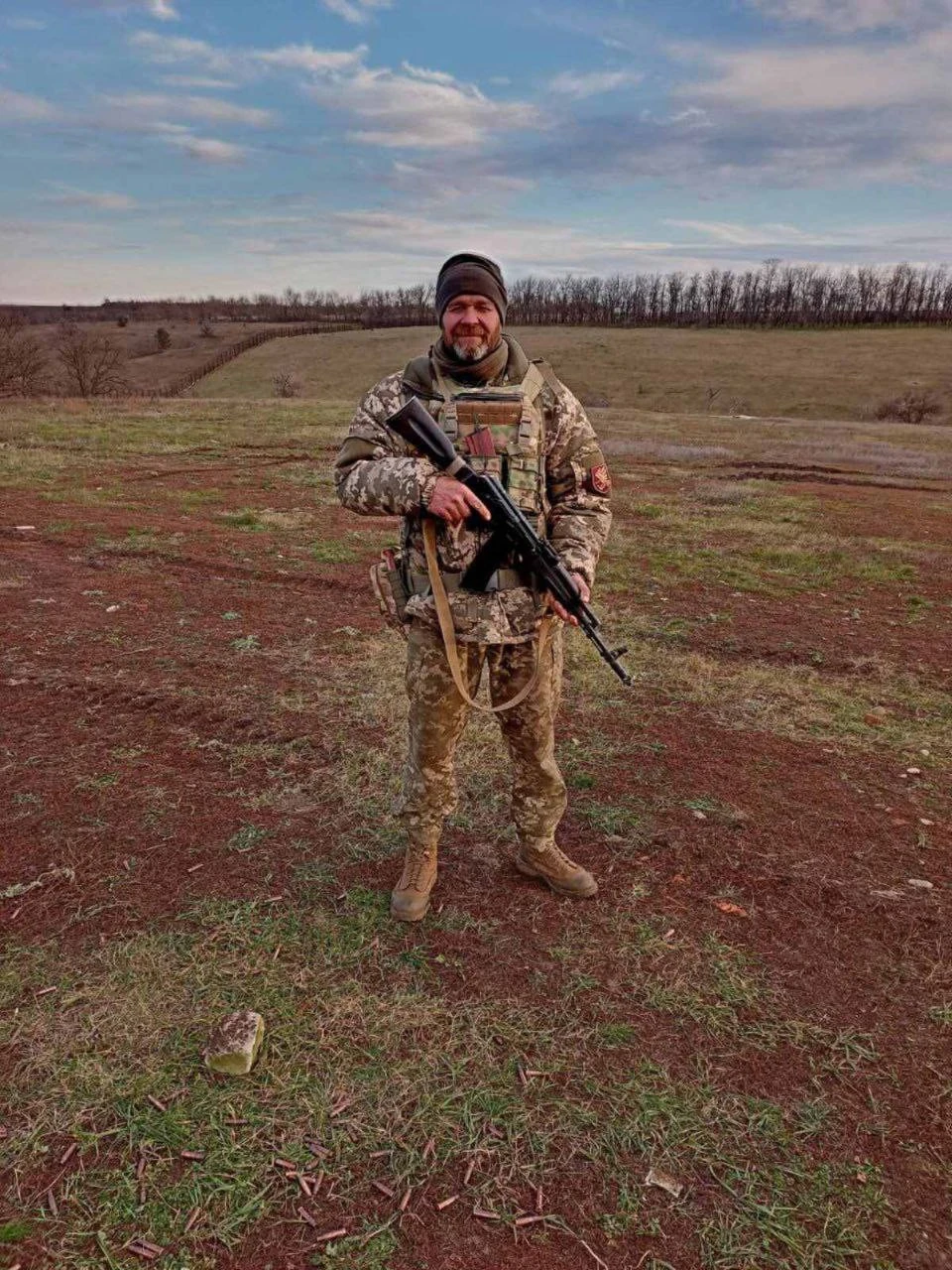
Photo: provided by Tetiana Hoidyk
Ukraine is unable to cope with the volume of required DNA tests
Tetiana has been communicating with government officials for almost a year and a half. She notes that during the full-scale war, they managed to build a dialog with them, although the main work on the search still falls on relatives.
"I attend all meetings. This includes the coordination headquarters, the Ministry of Internal Affairs, and meetings with the Human Rights Commissioner. I can say that finally we have instilled a dialogue with representatives of these structures. Ukraine was not prepared for such a war, even in terms of DNA workload. We simply do not have enough specialists and equipment to collect DNA samples, and there is nowhere to conduct all of this. So, I'm curious about how the lists of missing persons are compiled. It's surprising that there still isn't a unified database for the missing, released from captivity, and prisoners of war," says Tetiana Hoidyk.
The woman explains that representatives of the coordination headquarters for the missing have developed a protocol for "what to do when a soldier goes missing." However, nobody besides the family follows this protocol. Yet, not all soldiers have relatives who understand what needs to be done in such situations.
Tetiana explained that one has to search independently through personal contacts, acquaintances, Telegram channels, and even channels of the occupiers. Applying for portrait expertise. “No one in the state deals with this. We have to search through the channels of the orcs because the occupiers post photos of both prisoners and deceased persons. Therefore, the information available to the headquarters comes from relatives and close ones. Relatives themselves travel to all possible morgues where deceased soldiers are brought,” she said.
Uncertainty is the worst thing
The two-year-long search has become a challenging ordeal for Oleh Hurko's relatives.
"For me and my family, the worst part is the uncertainty. Every time I come to my parents, I don't know what to tell them because they are waiting for news. It's very difficult when you have no idea where your loved one is. You remember all his words, the time spent together. And recently, there was a terrible incident. Perhaps, my brother's SIM card was sold, and it showed on the phone that Oleh had joined Telegram. I have his phone lying in my drawer, but for a moment, my legs felt weak," the sister of the missing soldier recounts.
She says that reselling the number is prohibited, but it is being ignored. As a result, Tetiana started receiving numerous calls from relatives and acquaintances who wanted to inform her that Oleh supposedly "got in touch."
"I don't have anyone closer than my brother in my entire life. Even when I was pregnant, he was the first to find out. He took me as a godmother to both his daughter and son. He said that if something happened to him, “Tania will eat the soil, but she will put the children on their feet,” the sister recalls emotionally.
She adds that her brother loved to read, especially history. He cherished his country and was proud to serve in the 95th Brigade as a stormtrooper.
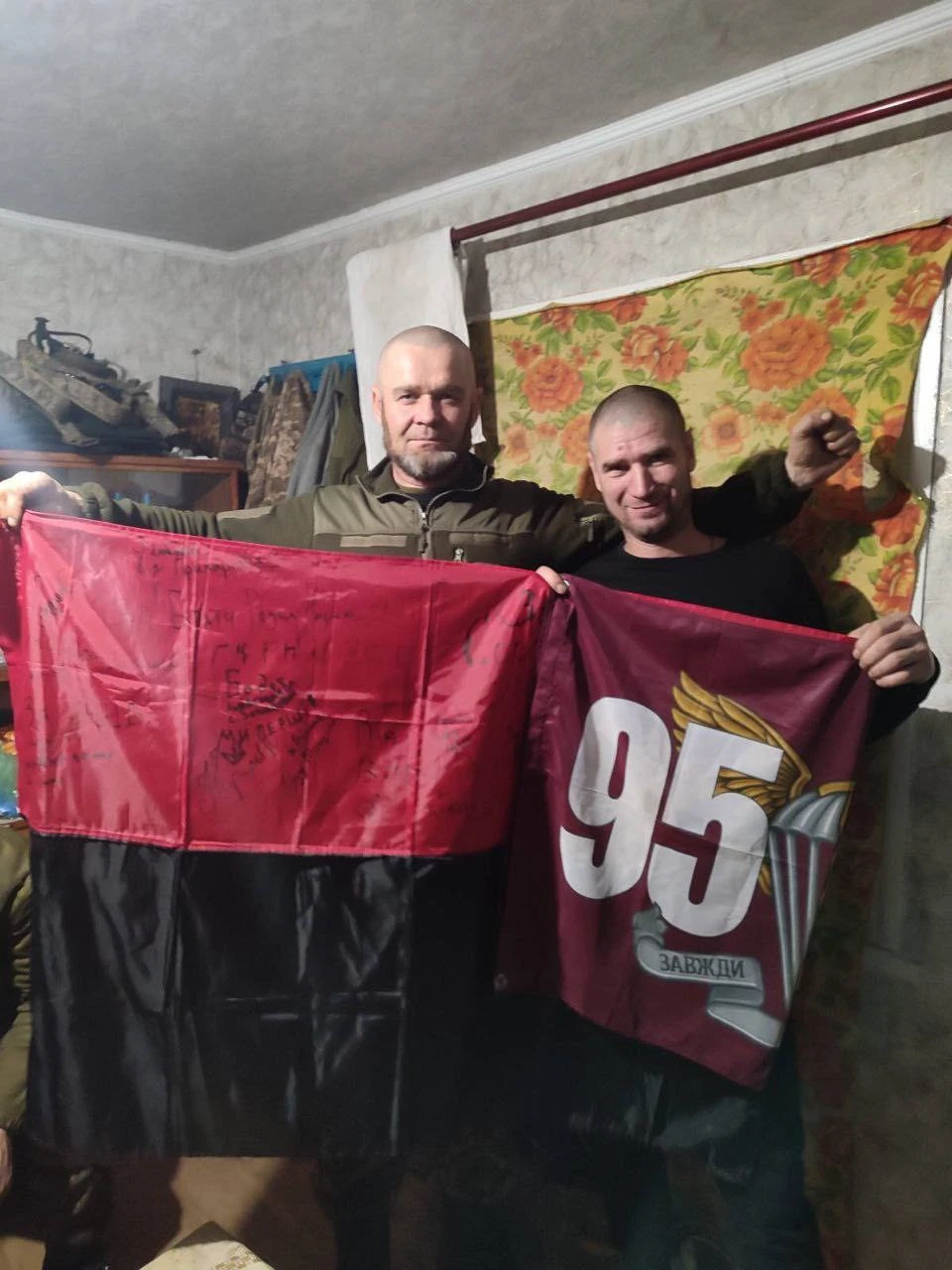
Photo: provided by Tetiana Hoidyk
"Oleh always said," recalls Tetiana, "that he had the best brothers-in-arms and would fight with them to the end.” However, she fervently hopes that the end has not yet come. Until her brother's body is found, the family promises to mobilize all available resources and not lose hope. After all, Oleh never lost it.
- News





